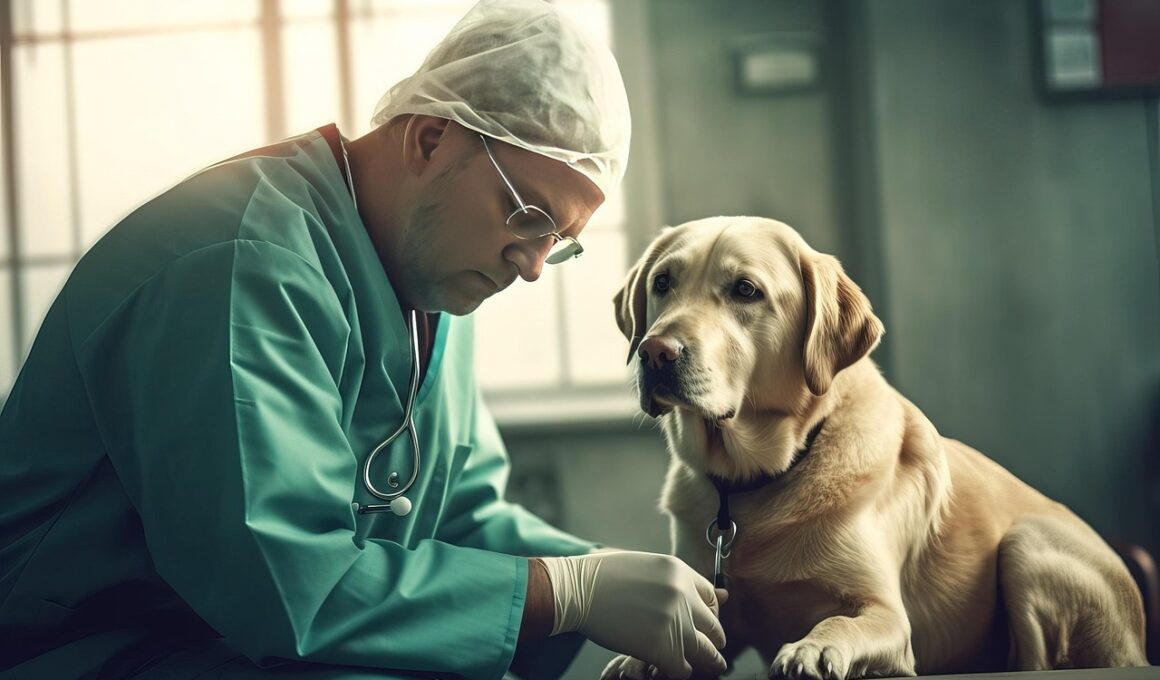Common Side Effects of Dog Vaccines and Their Causes
Vaccination plays a vital role in maintaining your dog’s health by preventing diseases. When a dog receives a vaccine, its immune system is stimulated to recognize and fight off specific viruses and bacteria. However, while most dogs tolerate vaccines well, some may experience side effects. These common side effects can range from mild to moderate symptoms, affecting their health temporarily. Some of the usual reactions include low-grade fevers, lethargy, swelling at the injection site, and reduced appetite. Generally, these reactions can occur due to the immune response, as the vaccine works to build protection in the dog’s body. Recognizing the typical side effects helps pet owners understand their pet’s health better post-vaccination. Observing your dog for two weeks after vaccination is essential, ensuring they are monitored for possible adverse effects. Most reactions are mild and resolve on their own. In case of severe reactions, such as difficulty breathing or excessive swelling, immediate veterinary attention is required. By being informed, dog owners can ensure the health and safety of their furry friends while maintaining proper vaccination schedules. Ensuring vaccinations are up to date is crucial for their long-term well-being.
Side effects typically emerge within a few hours or days following vaccination. Mild discomfort, such as soreness at the injection site, is usual and can persist for a couple of days. Dogs may also exhibit behaviors indicating that they are not feeling their best, such as decreased playfulness or increased sleepiness. These symptoms generally reflect the immune system’s response to the vaccine, which is essentially a sign that the vaccination is working. More concerning potential side effects can include allergic reactions, which might manifest as hives, difficulty breathing, or swelling of the face and limbs. Such reactions require prompt intervention from a veterinarian. It’s essential for pet owners to consult their vet before the vaccination appointment. Discussing your dog’s health history, including any previous reactions, ensures the chosen vaccine is appropriate for their needs. Understanding your dog’s specific health conditions can prevent complications. Keeping a close watch on their health in the aftermath of vaccination is advisable. Recognizing abnormal behavior following vaccination can prepare you for any necessary action, underscoring the importance of regular communication with your veterinarian for the best care possible.
Common Reactions to Vaccinations
Dogs may exhibit a variety of common reactions that owners should be aware of following vaccination. These reactions can be categorized into local and systemic responses. Local reactions, including soreness or swelling at the injection site, typically resolve within a few days and do not usually cause long-lasting issues. Systemic responses are those affecting the dog’s overall health, appearing more generalized. Common systemic reactions might include fever, decreased energy, or a temporary decrease in appetite. These effects are most commonly seen in combination vaccines that protect against multiple diseases. Although these systemic reactions can raise concerns, they are generally considered a normal part of the vaccination process. In most cases, these reactions signify that the dog’s immune system is actively responding to the vaccine. Pet owners should remain observant during the weeks following vaccination. While these reactions are usually mild, they allow pet owners to distinguish normal responses from potentially severe reactions. In such instances, notifying veterinary professionals can be crucial to address any unexpected complications effectively, ensuring your dog’s health and comfort are prioritized after vaccination.
In rare instances, more severe side effects may occur, requiring immediate veterinary consultation. These can include anaphylactic reactions, which, although infrequent, can be fatal. Signs of such reactions typically develop within minutes to hours after vaccination. Symptoms may include severe vomiting, diarrhea, persistent swelling, and difficulty breathing. If you observe these signs, it’s imperative to seek emergency medical help right away. Understanding the balance between necessary vaccinations and potential reactions helps pet owners make informed choices regarding their dogs’ health. Regular follow-ups with your vet can also build a more precise vaccination schedule based on your dog’s health and lifestyle. Injecting canines with essential vaccines shouldn’t be daunting but treated with respect. Keeping up-to-date on vaccine protocols as recommended by pet health authorities enhances overall safety. Each dog is unique; understanding their health patterns will equip you to address any specific concerns and maintain the best health practices. Final veterinary recommendations should always factor into vaccination decisions, ensuring your dog’s vaccination remains a wise choice that guarantees their long-term safety and happiness, while reducing the risks of adverse reactions.
Post-Vaccination Care
After your dog receives a vaccine, certain post-vaccination care practices can ensure a smoother recovery and overall well-being. First and foremost, monitoring your dog closely for any signs of side effects is crucial. Need to check their body temperature, ensuring it remains within the normal range. Provide them with a comfortable resting area where they can feel secure. Hydration is equally important, so make sure fresh water is accessible. Offering bland food can help if your dog displays a reduced appetite but isn’t too serious. Limit exercise for at least 24 hours post-vaccination, allowing the immune system time to respond to the vaccine effectively without added physical stress. Pay attention to their behavior, and anytime you notice deviations from the norm, don’t hesitate to contact your veterinarian. Keeping an eye on their recovery is vital; swift responses can help identify troublesome reactions that might require medical intervention quickly. Many dogs recover quickly with proper post-care. Schedule a follow-up appointment with your vet to discuss any concerns and to keep vaccination records updated. Building these healthy routines fosters a safe environment for your dog’s overall well-being.
To enhance your understanding of dog vaccinations, educating yourself is essential. Knowledge can empower dog owners to distinguish between normal behavior and signs of concern. Researching the vaccines administered, their purpose, and expected reactions will equip you to respond effectively. Various resources are available, such as veterinary articles, training classes, and community forums for dog owners. Engaging with these resources encourages proactive health management practices. Additionally, communicating with fellow dog owners can provide insight into their experiences and how those insights apply to your pet’s care. Keep in mind the significance of annual wellness exams, which can help track the efficacy of vaccinations and overall health. Tracking vaccination records plays a vital role in your dog’s health management. Make sure to consult professionals regarding the best vaccination schedule tailored for your dog’s specific needs. Personalized vaccination schedules might differ based on breed, age, and previous health conditions, emphasizing the need for tailored healthcare. Overall, ensuring your dog enjoys a vibrant and healthy life requires ongoing education, communication with vets, and monitoring post-vaccination health, culminating in responsible pet ownership.
Conclusion on Dog Vaccination Monitoring
Ultimately, understanding common side effects of dog vaccines prepares owners to handle potential reactions with ease. Vaccination is a crucial aspect of responsible pet ownership, significantly reducing the risk of severe diseases. Remaining vigilant post-vaccination ensures safety and health. While side effects are typically mild, all pet owners must know what to expect. Equipping yourself with knowledge about the side effects simplifies the vaccination experience. Immediate response to any concerning reactions can save a dog’s life, highlighting the importance of being prepared. Regular veterinary consultations strengthen the bond between pet owners and veterinary professionals, ensuring tailored care. Staying informed allows you to protect your furry companion effectively, safeguarding their health while improving their quality of life. Adopting preventive measures, such as keeping vaccination records and health documentation up to date, creates a platform for success as a pet owner. Ongoing education also plays a vital role in identifying potential concerns in your dog’s health journey. By prioritizing vaccination schedules, pet owners contribute to their dog’s long-term health, happiness, and overall well-being, celebrating a life free from preventable diseases.


